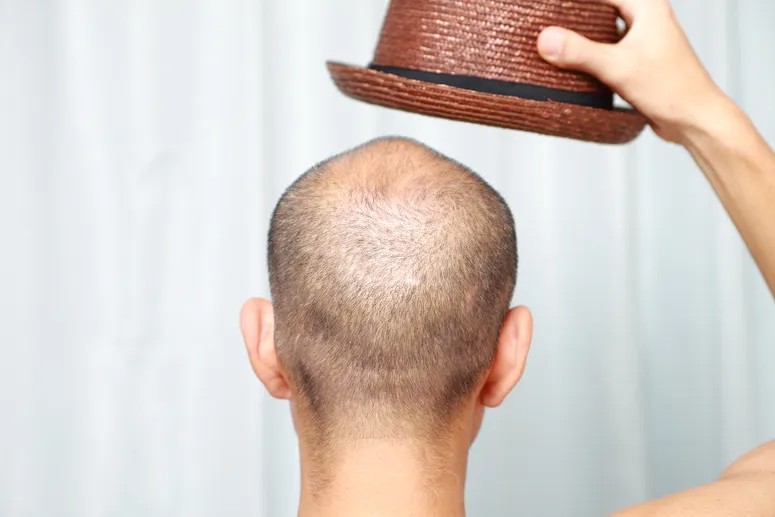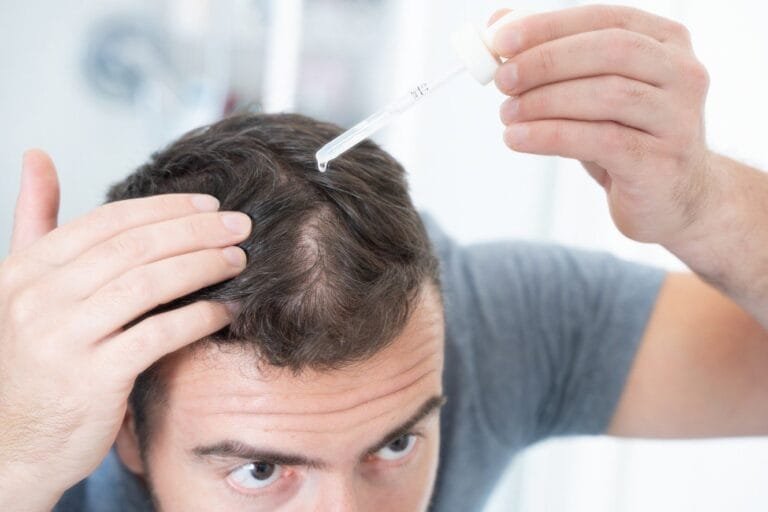Hats and Hair Loss: Unwraveling The Myths

In hair restoration, myths and tales as old as time often dictate the do’s and don’ts people swear by for maintaining a lush mane. Among these, the claim that wearing hats contributes to baldness is a particularly pervasive belief. Under the expert guidance of Dr. Steven Davis, a Board-Certified Plastic Surgeon leading a practice dedicated to restoring natural hair and boosting confidence, we delve into this topic to separate fact from fiction and provide clarity on the matter.
Unraveling the Tale: Hats and Hair Loss
The idea that hats could cause hair loss conjures images of tight caps suffocating the scalp and pulling at hair until it falls out. But is there any truth to this claim? Dr. Davis states, “The notion that hats contribute to baldness is more myth than reality. Hair loss primarily results from genetic factors, hormonal changes, and certain medical conditions, not from wearing hats.”
The Real Culprits Behind Hair Loss
Understanding the root causes of hair loss is essential in debunking myths. Dr. Davis explains, “The most common form of hair loss in men, androgenetic alopecia, or male pattern baldness, is largely due to genetic predisposition and hormonal influences, particularly dihydrotestosterone (DHT).” This condition affects both men and women, though the pattern of hair loss varies.
The Role of Hats in Scalp Health
While hats do not cause hair loss, improper hat-wearing habits could impact scalp health, influencing hair quality. Wearing overly tight hats that restrict circulation or lead to traction alopecia from constant pulling can be detrimental. Dr. Davis advises, “It’s important to wear hats that fit properly and maintain good scalp hygiene, especially if you wear them frequently.”
Myth Busting Hats and Hair Loss — No Direct Link
Dr. Davis emphasizes that there is no direct scientific link between hat-wearing and baldness. “If wearing hats were to cause hair loss, we would see a much higher incidence of baldness among hat wearers, which is not the case.” The concern should not be the hat but rather the attention to scalp care and acknowledging when hair loss might be symptomatic of underlying health issues.
Psychological Impact and Social Myths
The persistence of Hats and Hair Loss myths can have a significant psychological impact on individuals experiencing hair thinning or baldness. The stigma attached to hair loss often leads people to grasp any explanation or solution, including blaming external factors like hat-wearing. Dr. Davis underscores the importance of addressing these myths for educational purposes and alleviating unnecessary worry and stress. “Educating our patients about the true causes of hair loss can significantly boost confidence and encourage them to seek appropriate treatment options,” he notes.
Embracing Solutions: Beyond the Myths
Dr. Davis’s practice offers a beacon of hope for those concerned about hair loss. It provides advanced hair restoration treatments that go beyond debunking myths. “Our approach focuses on understanding the individual’s specific condition and tailoring treatments that can range from medical management to surgical options like hair transplantation,” explains Dr. Davis. The goal is to restore hair and the individual’s self-esteem and confidence.
The old wives’ tale that wearing hats contributes to baldness is largely unfounded. With his extensive experience and compassionate approach, Dr. Steven Davis reassures us that hair loss is a complex issue influenced by various factors, with genetics and hormonal changes playing significant roles. The focus should instead be on proper scalp care, avoiding practices that could potentially harm the scalp or hair, and seeking professional advice when concerned about hair loss.
As we debunk myths and provide accurate information, it’s essential to remember that hair loss is a common issue that many face. With advances in hair restoration and a better understanding of the underlying causes, individuals can find practical solutions and regain their hair and confidence. Dr. Davis and his team are dedicated to guiding patients through this journey, offering support, expertise, and the latest hair restoration technology.






